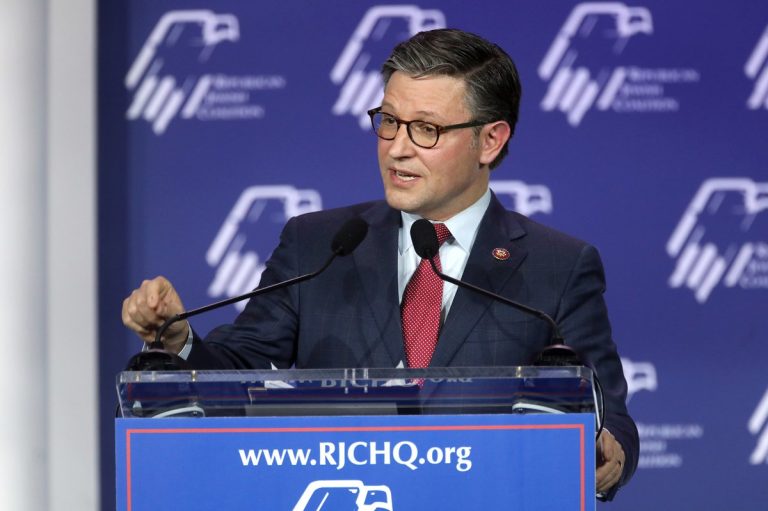Newly elected U.S. House Speaker Mike Johnson, Republican of Louisiana, is a man of faith – something many Americans, including me, can relate to. What’s less pleasant, however, is Johnson’s lifelong mission of using the power of government to impose one’s own faith on others.
As a Southern Baptist pastor from the same faith tradition as Johnson, I take a fundamentally different view: separation of church and state is essential for all faiths to thrive, including the OUR.
Recently, Johnson attack the constitutional principle of separation of church and state, calling it an “abuse of language”. The rest of his career followed the same trend: he quoted Christian nationalist leader David Barton, who exercised “profound influence”, served as dean of a failed Christian law school named after extremist Baptist leader Paul Pressler, and work for conservative Christian legal groups.
As the separation of church and state comes under increasing attack across the country, Johnson’s election to the presidency marks a worrying trend.
Oklahoma State, for example, is currently working create our nation’s first public religious charter school, which would use taxpayer dollars to evangelize Catholicism in its program. Texas lawmakers have proposed replacing public school guidance counselors with chaplains And prune prayer time in schools. Florida and Oklahoma recently allowed public schools to teach classes with PragerU, an online video series that favors a conservative Christian perspective.
These efforts not only undermine the promise of inclusive public education for all: they undermine the religious freedom that all faiths need to thrive.
My belief in the separation of church and state comes from my own experience of the Southern Baptist tradition, which placed a strong emphasis on the separation of church and state as necessary to our existence and our survival. Early in my ministry, I served at Kiokee Baptist Church, the oldest Baptist congregation in Georgia, founded by the great Baptist leader Daniel Marshall outside of Augusta in 1772.
Marshal established Kiokee after being arrested and ordered to leave Georgia for his Baptist preaching, which by law required a license from the Anglican Church in the State of Georgia. Our ancestors enshrined the separation of church and state in the U.S. Constitution to prevent such state-controlled religious discrimination from ever happening again.
Southern Baptists in my tradition remember well that we could not have existed and thrived in Georgia, or elsewhere in the United States, if other religions had been able to use state power to impose their beliefs. That’s why a group of Baptist pastors joined other religious leaders to form Americans United for the Separation of Church and State – of which I am a member of the advisory board – more than seventy-five years ago.
President Johnson comes from a different tradition, one that sows fear and division around a supposed secular takeover of the United States, and wants to use the power of government to bring Americans back into line.
Using government as a tool to serve any church will only divide and further alienate people from religion, when our role as servant leaders should be to unite. Sharing and growing all faith means serving our communities, however they worship, and presenting ourselves humbly and without judgment to the people around us.
Many religious leaders know that we need a separation of church and state to preserve everyone’s right to worship as they see fit, and oppose efforts to govern according to a single religion . This year alone, fourteen religious leaders joined Americans United’s lawsuit to block abortion restrictions in Missouri that lawmakers justified as a religious mandate. Others have joined the case against the religious public school in Oklahoma.
Getting involved in politics has long been a difficult task for many religious leaders who feel they could undermine their spiritual authority by taking a political stance. But when others seek to use their faith to govern, we should all raise our voices that maintaining the separation of church and state is the only way to ensure that faith, in all its forms, can thrive .
This column was product for Progressive Perspectives, a project of The progressive magazine and distributed by Tribune News Service.
January 13, 2024
07:00



